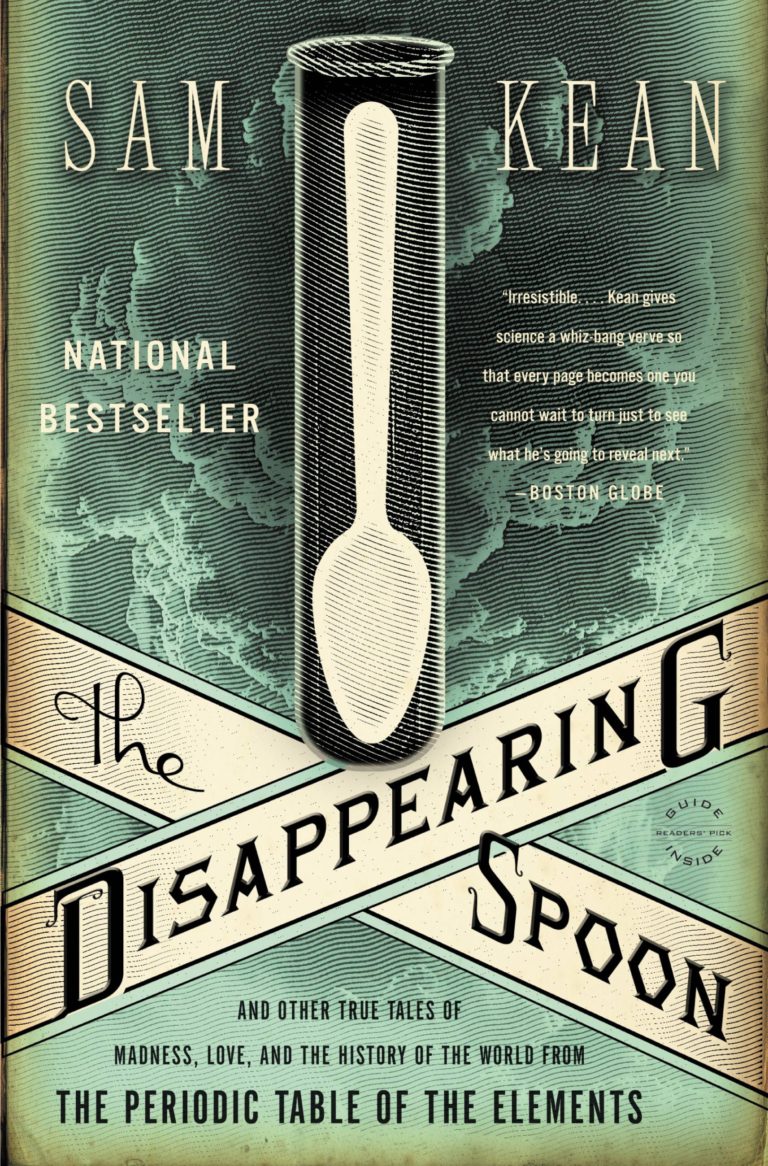INTRODUCTION TO THE DISAPPEARING SPOON
As a child in the early 1980s, I tended to talk with things in my mouth — food, dentist’s tubes, balloons that would fly away, whatever — and if no one else was around, I’d talk anyway. This habit led to my fascination with the periodic table the first time I was left alone with a thermometer under my tongue. I came down with strep throat something like a dozen times in the second and third grades, and for days on end it would hurt to swallow. I didn’t mind staying home from school and medicating myself with vanilla ice cream and chocolate sauce. Being sick always gave me another chance to break an old-fashioned mercury thermometer, too.
Lying there with the glass stick under my tongue, I would answer an imagined question out loud, and the thermometer would slip from my mouth and shatter on the hardwood floor, the liquid mercury in the bulb scattering like ball bearings. A minute later, my mother would drop to the floor despite her arthritic hip and begin corraling the balls. Using a toothpick like a hockey stick, she’d brush the supple spheres toward one another until they almost touched. Suddenly, with a final nudge, one sphere would gulp the other. A single, seamless ball would be left quivering where there had been two. She’d repeat this magic trick over and over across the fl oor, one large ball swallowing the others until the entire silver lentil was reconstructed.
Once she’d gathered every bit of mercury, she’d take down the green-labeled plastic pill bottle that we kept on a knickknack shelf in the kitchen between a teddy bear with a fishing pole and a blue ceramic mug from a 1985 family reunion. After rolling the ball onto an envelope, she’d carefully pour the latest thermometer’s worth of mercury onto the pecan-sized glob in the bottle. Sometimes, before hiding the bottle away, she’d pour the quicksilver into the lid and let my siblings and me watch the futuristic metal whisk around, always splitting and healing itself flawlessly. I felt pangs for children whose mothers so feared mercury they wouldn’t even let them eat tuna. Medieval alchemists, despite their lust for gold, considered mercury the most potent and poetic substance in the universe. As a child I would have agreed with them. I would even have believed, as they did, that it transcended pedestrian categories of liquid or solid, metal or water, heaven or hell; that it housed otherworldly spirits.
Mercury acts this way, I later found out, because it is an element. Unlike water (H2O), or carbon dioxide (CO2), or almost anything else you encounter day to day, you cannot naturally separate mercury into smaller units. In fact, mercury is one of the more cultish elements: its atoms want to keep company only with other mercury atoms, and they minimize contact with the outside world by crouching into a sphere. Most liquids I spilled as a child weren’t like that. Water tumbled all over, as did oil, vinegar, and unset Jell-O. Mercury never left a speck. My parents always warned me to wear shoes whenever I dropped a thermometer, to prevent those invisible glass shards from getting into my feet. But I never recall warnings about stray mercury. For a long time, I kept an eye out for element eighty at school and in books, as you might watch for a childhood friend’s name in the newspaper. I’m from the Great Plains and had learned in history class that Lewis and Clark had trekked through South Dakota and the rest of the Louisiana Territory with a microscope, compasses, sextants, three mercury thermometers, and other instruments. What I didn’t know at first is that they also carried with them six hundred mercury laxatives, each four times the size of an aspirin.


